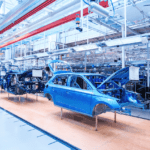

The Consumer Perception of Locally Assembled vs. Imported Cars in Pakistan
Consumers in Pakistan have varying perceptions when it comes to locally assembled cars versus imported cars. These perceptions are shaped by a multitude of factors, including cultural influences, economic considerations, and personal experiences.
One of the key factors influencing consumer perception is the perceived quality and reliability of the vehicles. Locally assembled cars are often seen as more reliable and durable, as they are manufactured in Pakistan and are specifically designed to withstand the country’s unique road and weather conditions. On the other hand, imported cars are often associated with higher quality and better performance due to their origin from countries known for their automotive expertise.
Another important aspect that influences consumer perception is the price. Locally assembled cars are generally more affordable than imported cars due to lower production costs and fewer import taxes. This affordability factor plays a significant role in the decision-making process for many consumers, especially those with limited budgets. However, some consumers perceive imported cars as a symbol of prestige and status, willing to pay a premium for the perceived higher quality and exclusivity.
The availability of spare parts and after-sales service is also a crucial consideration for consumers. Locally assembled cars have an advantage in this aspect, as spare parts are readily available and can be easily obtained at affordable prices. Additionally, the presence of authorized service centers and a well-established network of mechanics further strengthens the perception of reliability and convenience associated with locally assembled cars. In contrast, imported cars may face challenges in terms of spare parts availability and after-sales service, which can deter some consumers from considering them as a viable option.
Furthermore, consumer perception is heavily influenced by cultural factors. In Pakistan, there is a strong preference for locally assembled cars due to the nationalistic sentiment associated with supporting the local economy and promoting local industries. This sense of pride in buying locally manufactured products can sway consumer perception and motivate them to choose a locally assembled car over an imported one.
It is important to note that consumer perception of locally assembled versus imported cars is not static and can evolve over time. Factors such as changes in government policies, advancements in technology, and shifts in consumer preferences can all shape and reshape these perceptions. Therefore, it is crucial for car manufacturers and marketers to understand and adapt to these evolving perceptions in order to effectively cater to the needs and preferences of the Pakistani consumer.
1. Quality and Reliability
One of the main factors that influence consumer perception is the perceived quality and reliability of the cars. Locally assembled cars are often seen as more reliable and durable due to their production being tailored to the local conditions and requirements. Consumers believe that these cars are better suited to handle the challenging road conditions and climate of Pakistan.
On the other hand, imported cars are often associated with higher quality and superior technology. Consumers perceive these cars as being more advanced and offering better features compared to their locally assembled counterparts. However, there is also a concern about the availability of spare parts and after-sales service for imported cars, which can impact the overall perception of their reliability.
When it comes to locally assembled cars, manufacturers have the advantage of being familiar with the local market and its demands. They have a better understanding of the road conditions, climate, and consumer preferences in Pakistan. This allows them to design and produce cars that are specifically tailored to meet the needs of the local consumers. As a result, these cars are perceived to be more reliable and durable, as they are built to withstand the challenges of Pakistani roads and weather conditions.
Imported cars, on the other hand, are often seen as being of higher quality due to their association with international brands and advanced technology. These cars are often equipped with the latest features and innovations that may not be available in locally assembled cars. Consumers perceive imported cars as being more advanced and offering a superior driving experience.
However, there is a concern among consumers about the availability of spare parts and after-sales service for imported cars. Since these cars are not locally assembled, there may be a limited supply of spare parts, which can lead to longer wait times for repairs and maintenance. Additionally, the after-sales service for imported cars may not be as readily available or efficient as it is for locally assembled cars.
Overall, the perceived quality and reliability of cars in Pakistan is influenced by whether they are locally assembled or imported. Locally assembled cars are seen as more reliable and durable due to their production being tailored to the local conditions and requirements. On the other hand, imported cars are associated with higher quality and superior technology, but there are concerns about the availability of spare parts and after-sales service. Ultimately, consumers weigh these factors when making their purchasing decisions, considering their individual needs and preferences.
2. Pricing and Affordability
Another significant factor that influences consumer perception is the pricing and affordability of locally assembled and imported cars. Locally assembled cars are generally more affordable due to lower production costs and the availability of government incentives for local manufacturers. This affordability factor makes locally assembled cars more accessible to a wider range of consumers, especially those with budget constraints.
On the other hand, imported cars are often perceived as more expensive and luxurious. Consumers associate these cars with higher price tags and consider them to be a symbol of prestige and status. However, the higher price tag also limits the accessibility of imported cars to a smaller segment of the population.
When it comes to pricing, consumers consider not only the initial cost of the car but also the long-term expenses associated with owning and maintaining it. Locally assembled cars often have lower maintenance costs due to the availability of spare parts and trained mechanics. This factor can further enhance the affordability of locally assembled cars in the eyes of consumers.
Moreover, financing options and interest rates also play a crucial role in determining the affordability of cars. Local manufacturers often collaborate with banks and financial institutions to offer attractive financing packages, including low-interest rates and flexible repayment terms. This makes it easier for consumers to purchase locally assembled cars by spreading out the cost over a longer period.
On the other hand, imported cars may have limited financing options, and the interest rates associated with them can be higher. This can make it more challenging for consumers to afford imported cars, as they may need to pay a significant amount upfront or face higher monthly payments.
In summary, the pricing and affordability of locally assembled and imported cars greatly influence consumer perception. Locally assembled cars are generally more affordable, accessible to a wider range of consumers, and often have lower long-term expenses. Imported cars, on the other hand, are associated with higher price tags and limited accessibility due to their luxurious image. Factors such as maintenance costs and financing options also contribute to the overall affordability of cars and can sway consumer preferences.
3. Resale Value and Depreciation
Resale value and depreciation are also crucial factors that influence consumer perception of locally assembled and imported cars. Locally assembled cars are generally perceived to have better resale value and lower depreciation rates. This perception is based on the assumption that these cars are more popular in the local market and have a larger customer base, making them easier to sell and retain their value over time.
However, it is important to consider that the resale value and depreciation of a car can be influenced by various factors. One of the key factors is the brand of the car. Well-established brands often have a better resale value compared to lesser-known brands. This is because consumers tend to trust and have more confidence in well-known brands, which leads to a higher demand for their cars in the used car market.
Another factor that affects resale value and depreciation is the model of the car. Some car models are known for their reliability, durability, and popularity, which contributes to their higher resale value. For example, a locally assembled car that has a reputation for being fuel-efficient, low-maintenance, and has a strong demand in the market is likely to have a better resale value compared to an imported car with similar features.
The condition of the car also plays a significant role in determining its resale value. A well-maintained car with low mileage and no history of accidents or major repairs will generally have a higher resale value compared to a car that has been poorly maintained or has a history of damages. This is because buyers prefer cars that are in good condition and are less likely to incur additional expenses on repairs or maintenance.
Market demand is another important factor that influences resale value and depreciation. If a particular car model is in high demand in the used car market, it is likely to have a better resale value compared to a car model that has limited demand. Factors such as changing consumer preferences, advancements in technology, and the introduction of new car models can impact the demand for specific car models, thus affecting their resale value.
Therefore, while it is true that locally assembled cars are generally perceived to have better resale value and lower depreciation rates, it is essential to consider other factors such as the brand, model, condition, and market demand when evaluating the resale value and depreciation of a car. Additionally, it is important for consumers to conduct thorough research and consider their specific needs and preferences before making a decision to purchase a car, whether it is locally assembled or imported.
Add a comment Cancel reply
Categories
- automobile (1)
- Automotive (32)
- Automotive Industry (2)
- Automotive Safety (1)
- Car Brands (1)
- Car Buying (1)
- Car Reviews (1)
- Clean Energy (1)
- Marketing (1)
- Motorcycles (1)
- Trade Agreements (1)
- Transport & Mobility (1)
- Transportation (2)
- Travel (2)
Recent Posts
About us

Popular Tags
Related posts

Understanding Custom Duties and Taxes Affecting Car and Bike Prices in Pakistan









